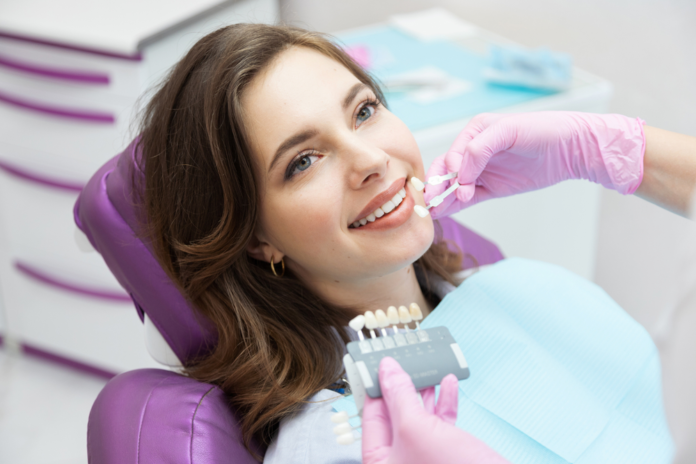Good dental hygiene is essential for healthy teeth, fresh breath, and a confident smile. It also plays a vital role in overall health, helping to prevent infections, gum disease, and other complications. Maintaining proper oral hygiene isn’t just about brushing—it’s about a complete daily routine and regular dental care. Following the best practices can keep your mouth clean and reduce long-term dental problems.
Brush Your Teeth Twice Daily
The foundation of dental hygiene starts with brushing your teeth twice a day, preferably:
- Once in the morning after breakfast
- Once at night before going to bed
Use a soft-bristled toothbrush and fluoride toothpaste. Brush for at least two minutes, covering all tooth surfaces—front, back, and chewing areas.
Use the Right Brushing Technique
Brushing the right way ensures better cleaning. Follow these tips:
- Hold your brush at a 45-degree angle to your gums
- Use gentle, circular motions
- Don’t scrub too hard—this can harm gums and enamel
- Replace your toothbrush every 3–4 months
A correct technique makes a big difference in removing plaque effectively.
Floss at Least Once a Day
Flossing removes food particles and plaque from between teeth—areas your toothbrush can’t reach. Make flossing a daily habit, ideally before bedtime. Use:
- Standard dental floss
- Floss picks or interdental brushes if regular flossing is difficult
Flossing helps prevent gum disease and cavities between teeth.
Rinse With Mouthwash
Antibacterial mouthwash helps reduce plaque, freshens breath, and kills germs in hard-to-reach areas. Choose a fluoride or antiseptic mouthwash and swish it for 30 seconds after brushing or flossing. Avoid eating or drinking for 30 minutes afterward for maximum effect.
Eat a Tooth-Friendly Diet
What you eat affects your dental health. Focus on:
- Calcium-rich foods like milk, yogurt, and leafy greens
- Crunchy fruits and vegetables that naturally clean teeth
- Limiting sugary snacks, soda, and acidic drinks
Sugary and acidic foods feed harmful bacteria and wear down tooth enamel.
Drink Plenty of Water
Water helps wash away food particles and bacteria from your mouth. Drinking water:
- Keeps your mouth hydrated
- Neutralizes acids after meals
- Reduces the risk of tooth decay
Choose water over sugary drinks or juices to maintain oral freshness.
Avoid Tobacco Products
Smoking and chewing tobacco are major risk factors for:
- Gum disease
- Tooth discoloration
- Bad breath
- Oral cancer
Avoiding tobacco greatly improves your dental and overall health.
Visit the Dentist Regularly
Routine dental checkups and cleanings every six months help catch problems early. Your dentist can:
- Remove tartar buildup
- Examine for cavities, gum disease, or oral cancer
- Provide professional guidance for better hygiene
Early detection prevents bigger and costlier issues later.
Use Dental Products with Fluoride
Fluoride strengthens tooth enamel and prevents cavities. Make sure your toothpaste and mouthwash contain fluoride. If needed, your dentist may recommend fluoride treatments or rinses for added protection.
Clean Your Tongue
Bacteria can build up on the tongue, leading to bad breath and oral problems. Clean your tongue using:
- A tongue scraper
- The back of your toothbrush
Do this daily, especially in the morning, to keep your breath fresh.
Be Mindful of Teeth Grinding
Grinding (bruxism) can wear down your teeth over time. If you notice:
- Jaw pain
- Headaches upon waking
- Flattened or chipped teeth
Talk to your dentist. They may suggest a mouth guard to protect your teeth while you sleep.
Use Sugar-Free Gum Between Meals
Chewing sugar-free gum after meals increases saliva flow, which:
- Helps wash away food particles
- Neutralizes acid
- Strengthens enamel with added xylitol
This is especially helpful when brushing isn’t possible.
Limit Snacking
Frequent snacking, especially on sugary or sticky foods, raises your risk of decay. Instead:
- Stick to three main meals a day
- If snacking, choose healthy options like nuts or cheese
- Rinse your mouth with water afterward if you can’t brush
Conclusion
Maintaining good dental hygiene is a daily commitment that goes beyond just brushing your teeth. By following consistent habits like proper brushing, daily flossing, regular dental visits, and healthy eating, you can protect your smile and avoid future dental issues. A clean mouth is a sign of a healthy body—so treat it with care every day.
FAQs
How often should I brush my teeth?
At least twice a day—once in the morning and once before bed.
Is flossing really necessary if I brush well?
Yes, flossing cleans areas between teeth that brushing can’t reach.
Can I use mouthwash instead of brushing?
No, mouthwash is a supplement—not a substitute—for brushing and flossing.
How long should I brush my teeth?
Brush for at least two full minutes each time for effective cleaning.
Do electric toothbrushes work better than manual ones?
Electric brushes can be more effective in removing plaque, especially for people with limited hand movement.

